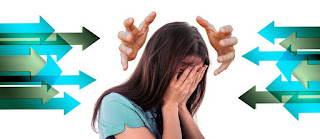Your Plane Is in a Nosedive: Part 11 of 12
I hope this series of blog posts will enable you to recognize some symptoms of relapse. I meant well and tried hard, but I kept relapsing anyway. There was often a nagging little voice telling me to go ahead and try a drink. Maybe this series of blog posts will help you or a loved one break out of the relapse pattern sooner and easier than I did.
 Terence T. Gorski, co-author of Staying Sober, identified 11 phases of relapse in his book Staying Sober (https://www.amazon.com/Terence-T.-Gorski/e/B001JSA9K8). I hope you will find this series helpful enough to review again and again -- at once or in parts. An idea might be to checkmark symptoms in the 11 phases to see if you or a loved one is in danger of relapsing. Then take action.
Terence T. Gorski, co-author of Staying Sober, identified 11 phases of relapse in his book Staying Sober (https://www.amazon.com/Terence-T.-Gorski/e/B001JSA9K8). I hope you will find this series helpful enough to review again and again -- at once or in parts. An idea might be to checkmark symptoms in the 11 phases to see if you or a loved one is in danger of relapsing. Then take action.
Gorski's research involved 118 recovering patients who had four things in common:
Phase 10. Option reduction. During this phase you feel trapped by the inability to control your life. You believe you have just three ways out: insanity, suicide, or self-medication with alcohol. You think you are beyond help.
Unreasonable resentment. You are angry because you can't behave the way you want to. Sometime you feel angry with the world, sometimes with someone or something, and sometimes yourself.
Discontinues all treatment and A.A, If you are taking antabuse (a prescription that will turn you violently ill if you consume any alcohol), you forget to take it or quit deliberately. If you have a sponsor, conflict develops and the relationship usually ends. You may drop out of counseling even though you need help and know it.
Overwhelming loneliness, frustration, anger, and tension. You feel like you are going crazy.
Loss of behavioral control. Your progressive and disabling loss of control begins to cause serious problems in all areas of life, including health. You feel like you can't regain control no matter what you do. No cure will ever work.
Next Up: Phase 11: Alcohol and drug use
Your relapse is complete. 😖
 Terence T. Gorski, co-author of Staying Sober, identified 11 phases of relapse in his book Staying Sober (https://www.amazon.com/Terence-T.-Gorski/e/B001JSA9K8). I hope you will find this series helpful enough to review again and again -- at once or in parts. An idea might be to checkmark symptoms in the 11 phases to see if you or a loved one is in danger of relapsing. Then take action.
Terence T. Gorski, co-author of Staying Sober, identified 11 phases of relapse in his book Staying Sober (https://www.amazon.com/Terence-T.-Gorski/e/B001JSA9K8). I hope you will find this series helpful enough to review again and again -- at once or in parts. An idea might be to checkmark symptoms in the 11 phases to see if you or a loved one is in danger of relapsing. Then take action.Gorski's research involved 118 recovering patients who had four things in common:
- They completed a 21- or 28-day rehab program;
- They recognized they could never again safely use alcohol;
- They intended to remain sober forever through A.A. and outpatient counseling;
- They had eventually relapsed to drinking despite 1-3.
Symptoms and Warning Signs of Relapse
Unreasonable resentment. You are angry because you can't behave the way you want to. Sometime you feel angry with the world, sometimes with someone or something, and sometimes yourself.
Discontinues all treatment and A.A, If you are taking antabuse (a prescription that will turn you violently ill if you consume any alcohol), you forget to take it or quit deliberately. If you have a sponsor, conflict develops and the relationship usually ends. You may drop out of counseling even though you need help and know it.
Overwhelming loneliness, frustration, anger, and tension. You feel like you are going crazy.
Loss of behavioral control. Your progressive and disabling loss of control begins to cause serious problems in all areas of life, including health. You feel like you can't regain control no matter what you do. No cure will ever work.
Next Up: Phase 11: Alcohol and drug use
Your relapse is complete. 😖
Comments
Post a Comment